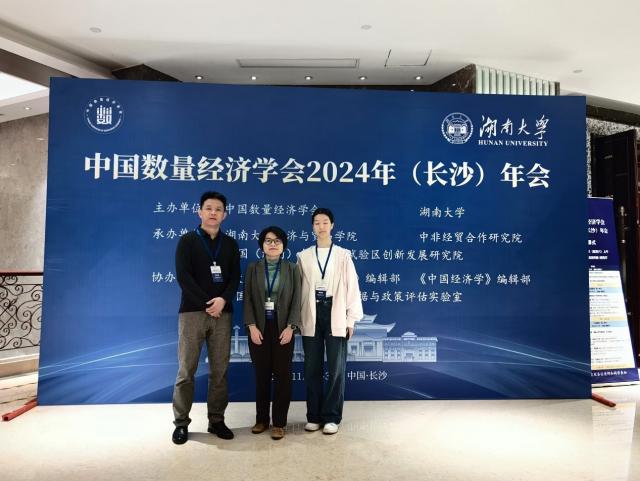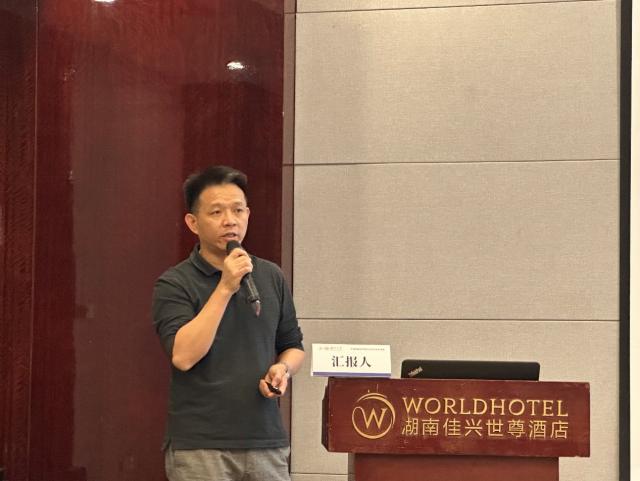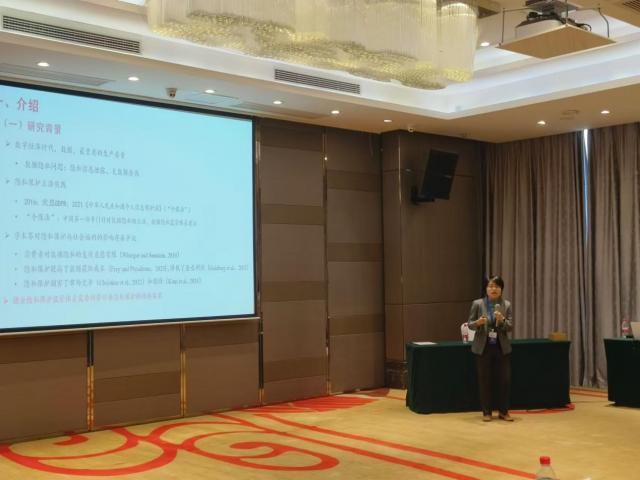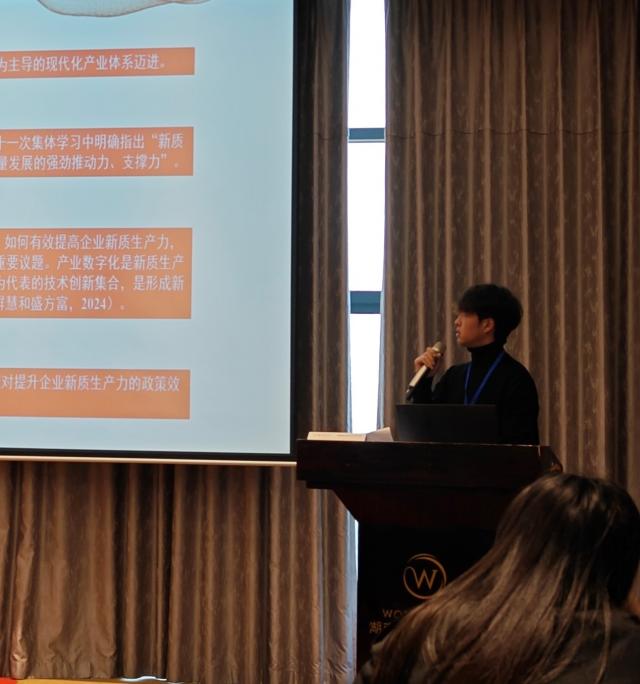The 2024 Annual Meeting of China Association of Quantitative Economics (Changsha) was held in Hunan University from November 1 to 3. Professor He Xiaogang, young teacher Dr. Tan Shiyu and master students Jin Yuzheng and Yang Sunan attended the meeting. The annual conference was co-sponsored by the China Association of Quantitative Economics and Hunan University, and hosted by the School of Economics and Trade of Hunan University, the Academy of China-Africa Economic and Trade Cooperation, and the China (Hunan) Pilot Free Trade Zone Innovation and Development Research Institute. Nearly 800 people from more than 100 universities, research institutions, and journal editorial departments attended the conference.

With the theme of "Promoting Chinese-style modernization", the conference focused on major issues that urgently need to be studied, such as "building a high-level socialist market economic system and promoting high-quality economic development", and actively discussed hot issues such as how to build a national unified large market, develop new quality productive forces, and promote the deep integration of the real economy and the digital economy in China.

Professor He Xiaogang was invited to be a guest critic at the sub-forum of this conference, and reported his paper "Firm Growth in the Wave of Artificial Intelligence Innovation - Evidence from BERT Model" in the parallel forum "Special Topic on Causal Inference Methods and Applications". Dr. Tan Shiyu presented his papers in the parallel forum "Digital Economy and Artificial Intelligence -II" : "Privacy Protection Regulation and Core Enterprise Performance in Digital Economy: Empirical Evidence from the Implementation of the" Individual Protection Law "; Jin Yuzheng, a master's student, presented a paper entitled "Research on the impact of Intelligent Transformation on New Quality Productivity of Enterprises - Evidence from Smart Manufacturing Pilot Policies" in the parallel forum "Green Finance and Low-carbon Transition -II".

Many participants believed that the conference created an academic atmosphere of openness and diversity, ideological collision and academic contention for scholars in domestic and foreign universities and research institutions and related fields of quantitative economics, deepened the exploration of quantitative economics and related fields, promoted academic exchanges among experts in related disciplines, and made beneficial contributions to improving the teaching and research level of quantitative economics.

The Institute has always been committed to promoting economic research and academic exchanges, and encourages faculty and students to actively participate in academic conferences at home and abroad. By participating in this annual conference, our college has strengthened academic ties with domestic and foreign counterparts, and promoted the collision of academic ideas and knowledge exchange.

